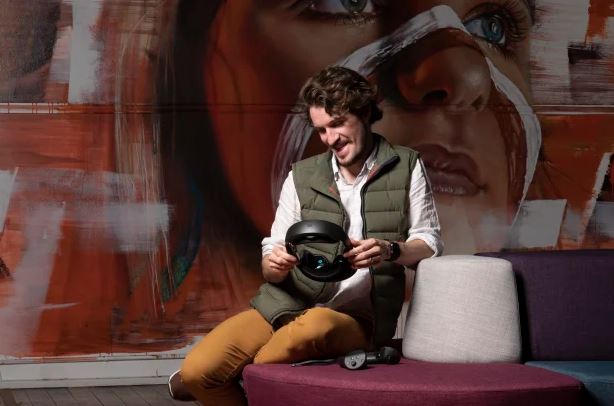News
Congratulations to Trent Clews-de Castella (Class of 2007) – his company Phoria helping Mark Zuckerberg realise his metaverse dream!
Trent Clews-de Castella admits he was a little confused when the company formerly known as Facebook asked his Melbourne design studio, Phoria, to help realise Mark Zuckerberg’s dream of turning Facebook into a metaverse company.
Trent Clews-de Castella admits he was a little confused when the company formerly known as Facebook asked his Melbourne design studio, Phoria, to help realise Mark Zuckerberg’s dream of turning Facebook into a metaverse company.
Phoria – which designs augmented- and virtual-reality software used to do anything from sell real estate to help identify endangered frogs or tell the stories of Paralympians – wasn’t used to having work just handed to it like that.
“They just came to us. They didn’t say ‘Here’s a bid, submit your ideas.’ They were like, ‘You’re the best in the world at this, let’s do something new together’.
“It was a really uncanny moment. I was like, ‘Do we already have the job?’ and they were like, ‘Yeah’,” Mr Clews-de Castella says.
Meta (nee Facebook) previewed that new something last week: Phoria’s Spatial Fusion website, made in conjunction with UK real-time graphics design team Lusion, which Meta demonstrated as part of the launch of its Quest Pro mixed-reality headset.
The site, which Meta bills as the world’s first mixed-reality app delivered over the web (such apps are normally delivered via app stores rather than as websites), demonstrates what Meta calls the “immersive web”.
For users wearing the Quest Pro headset over their eyes, the site takes a live feed of their immediate surroundings from cameras mounted on the headset, and then combines that feed with sci-fi content streaming over the internet to create a single, three-dimensional image that’s displayed on the headset’s 3D screen.
We’re one of the horses they’ve backed, so I’d be a fool to say they backed the wrong horse.
— Trent Clews-de Castella, Phoria CEO
The Quest Pro headset, which will cost $2450 when it goes on sale on October 25, represents Meta’s push into the enterprise end of mixed-reality. It combines the augmented-reality features of Microsoft’s very enterprise-focused Hololens headset with the virtual-reality features that users of Meta’s older and cheaper Quest headsets might be more familiar with.
(Indeed, Microsoft announced a number of business-oriented features for the headset at the same launch event, including virtual-reality meetings for its Teams collaboration software, and Meta Avatar support for Teams, which will let a Quest user’s digital avatar appear in a Teams meeting.)
But Meta’s launch event attracted its share of critics, who variously complained that the price of the new headset showed Meta had lost touch with its Facebook user base, and that the move into the metaverse would have been better as a research project off to the side of the Facebook business, rather than something that Mr Zuckerberg had staked the entire company on.
Clews-de Castella, though, sees Facebook’s rebranding as Meta and its move into the metaverse quite differently.
“People might look at all the money Meta is spending on the metaverse, and at the 10 years it might take to recoup that investment and wonder whether it has backed the right horse.
“But that investment is actually going to studios like Phoria. We’re one of the horses they’ve backed, so I’d be a fool to say they backed the wrong horse,” he says.
Just like people complained when Steve Jobs introduced a phone that lacked a BlackBerry-style keyboard, “step changes” like the move to a more immersive version of the web “are always going to be met by the naysayers”.
“But we’ve seen virtual reality adoption ramping in our own apps,” says Mr Clews-de Castella.
“Apple is working hard behind the scenes, too, and when they come to the party we’ll see a huge proliferation of immersive content.
“We would have got there eventually, but with Facebook having joined in, I think we’ll get there faster,” he says.
Content and photo: Australian Financial Review
Related Collegians
Trent Clews-de Castella
CLASS OF 2007



